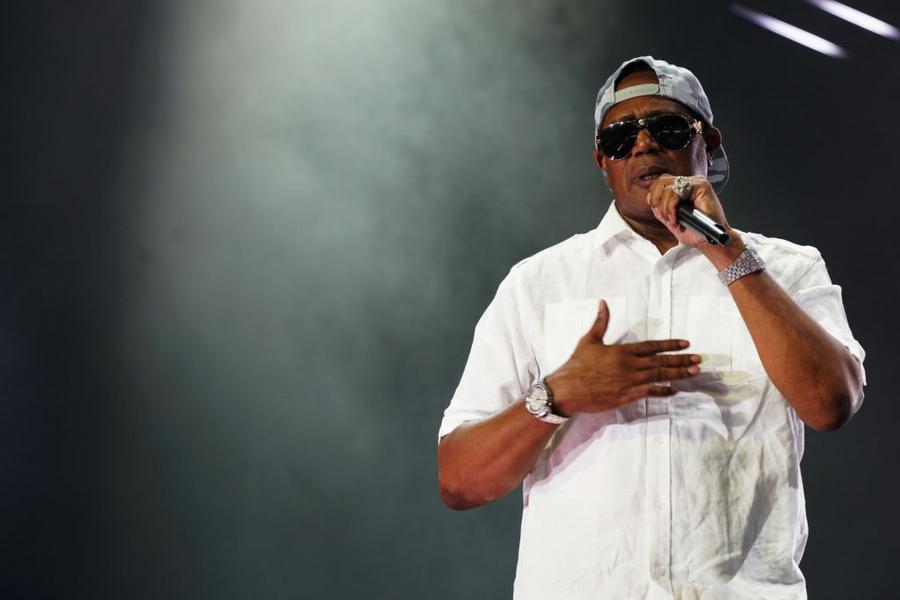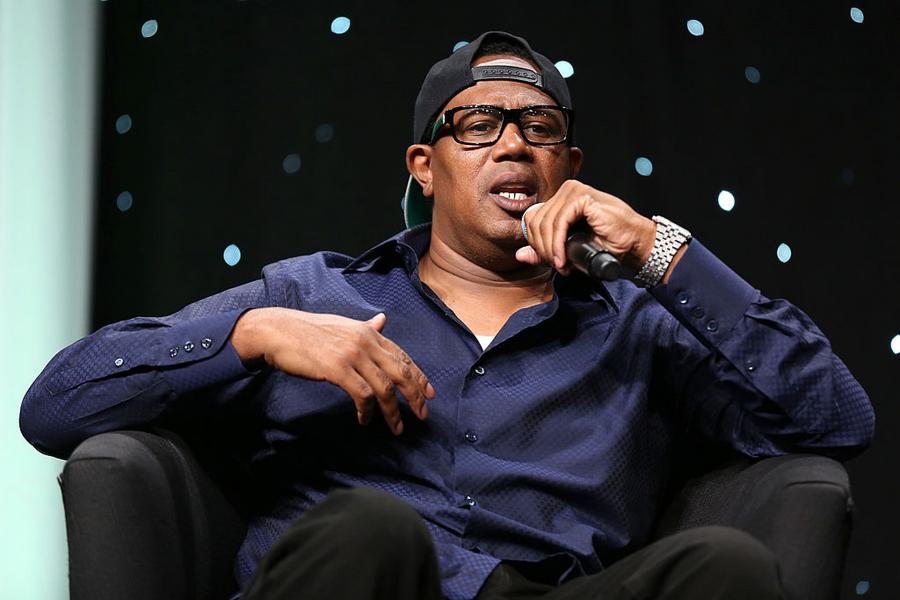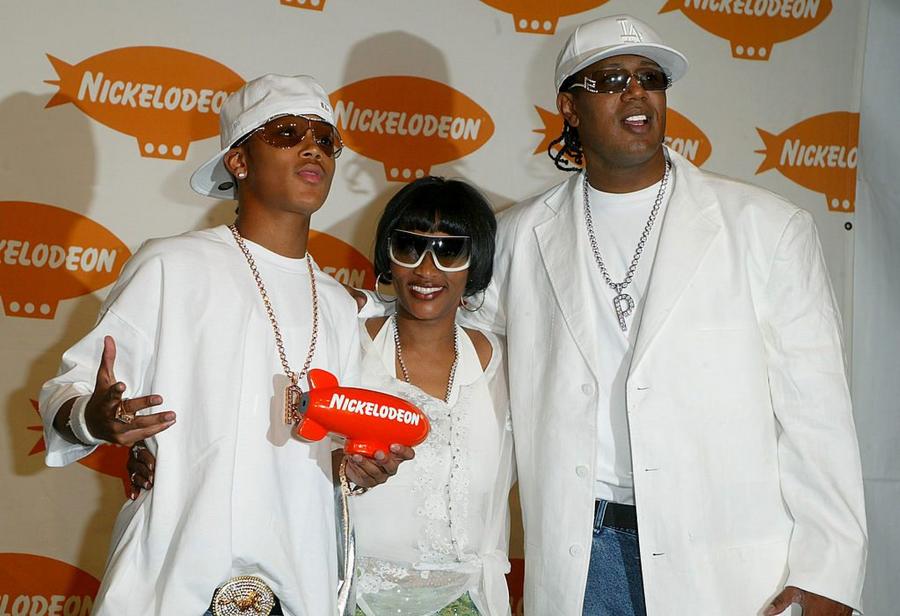When you browse our ranking of the richest rappers in the world, many of the top names are probably easy to guess: Dr. Dre, Drake, Kanye West, Diddy, Jay-Z… But what about the surprisingly rich rapper who ranks at #8? The guy who built a $200 million fortune without the benefit of a major label or chart-topping hit in over two decades. A guy whose company absolutely DOMINATED rap music in the late 1990s.
In case you haven't figured it out yet, we are talking about the ultimate No Limit soldier, Percy Miller. Better known as Master P.
It might be hard to fathom today, but in the mid-to-late 1990s, no other rap label or CEO was more successful than Master P and No Limit Records. In 1998 alone, No Limit Records sold 20 million albums. The company produced video games and films, launched clothing lines, and owned real estate, among many other investments. In the late 1990s, No Limit generated $100-200 million per year in revenue. Master P's rise is one of the most remarkable and unlikely success stories in music history. And it all started with a $10,000 life insurance settlement….

Bennett Raglin/Getty Images
Early Life
Master P was raised in the Calliope housing projects, one of the most violent and impoverished areas of New Orleans. His dream was to get his family out of the ghetto by playing in the NBA. After high school, he earned a basketball scholarship to the University of Houston, but a knee injury during his freshman year ended those aspirations.
He transferred to Merritt Junior College in Oakland, California, to be closer to family who had recently relocated to nearby Richmond. There, he immersed himself in business classes and studied entrepreneurship. In 1990, tragedy struck when his grandfather was killed in a work-related accident, leaving Percy with a $10,000 malpractice insurance settlement check. And what does one do with an unexpected $10,000 life insurance settlement? The average person might simply put it in savings or buy a car or get a new apartment. Master P decided to launch an empire.
Starting No Limit Records & Tapes
Armed with two years of business knowledge and a relentless work ethic, Master P decided to open a record store. He found a run-down storefront on San Pablo Avenue in Richmond and convinced the landlord to let him move in rent-free for three months in exchange for cleaning and repairs. He named the store "No Limit Records & Tapes." To save money, he lived in a tiny storage room behind the shop with his wife, Sonya, and their one-year-old son, Percy Romeo Miller Jr. (the future Lil Romeo).
The shop specialized in West Coast gangster rap, carrying albums by Tupac, Too Short, Rappin' 4 Tay, and E-40. Within months, the store was thriving, and Master P began recording and selling his own music. His debut album, "Get Away Clean," dropped in 1991, followed by "Mama's Bad Boy" in 1992, which sold over 150,000 copies independently.
In 1990, Master P also suffered another family tragedy when his brother Kevin Miller was killed in New Orleans. The loss deepened his resolve to succeed and bring his family to safety. Around this time, he formed the group TRU (The Real Untouchables) with his brothers Silkk the Shocker and C-Murder, helping lay the groundwork for No Limit's future roster.
Turning Down $1 Million
After "The Ghettos Tryin' to Kill Me!" sold 250,000 copies independently in 1994, Master P caught the attention of major labels. In a now-legendary moment, he turned down a $1 million record deal from Interscope's Jimmy Iovine. As Master P later explained:
"If they're offering me a million dollars, I've got to be worth $10 million or more."
That decision would pay off spectacularly.
Owning The Masters
Instead of signing away his rights, he negotiated a groundbreaking distribution deal with Priority Records. Under the deal, No Limit received a $375,000 advance per album and retained 75% of the wholesale revenue—more than double what most top artists earned. But the most revolutionary part of the deal was ownership. Master P kept 100% of the master recordings for his albums and every album released by artists on No Limit. That roster included:
- Silkk the Shocker
- C-Murder
- Mystikal
- Mia X
- Fiend
- Kane & Abel
- Soulja Slim
- Mac
- Big Ed
- Mr. Serv-On
- Mercedes
- Steady Mobb'n
- TRU (featuring Master P, Silkk the Shocker, and C-Murder)
In the 1990s, that was almost unheard of. Major labels typically owned the masters outright, which meant they controlled how songs could be licensed, reissued, or monetized—and the artist might see only pennies on the dollar. By owning his masters, Master P controlled the most valuable intellectual property in music: the recordings themselves. Every time a No Limit song was streamed, sampled, licensed for film or TV, or repackaged into a compilation, the bulk of the revenue flowed directly back to his company instead of a corporate label.
That ownership turned No Limit into an asset-rich powerhouse. Between 1995 and 2000 alone, the label released dozens of platinum and gold albums, and Master P retained the rights to all of them. Even conservative estimates place the combined value of those master recordings at $100 million. They continue to generate royalties and licensing income decades later, providing the foundation for Master P's lasting wealth.
In essence, Master P didn't just build a record label—he built a long-term intellectual property portfolio that behaves like real estate or stock. It appreciates, it produces passive income, and it can be leveraged, sold, or licensed indefinitely. His decision to keep ownership set a precedent that artists like Taylor Swift, Kanye West, and Drake would fight to replicate years later. Master P's deal didn't just make him rich—it changed the business of hip-hop forever.

Chelsea Lauren/Getty Images
The Peak of Success
In 1998, Master P released "MP Da Last Don," which debuted at #1 and sold 500,000 copies in its first week, eventually moving over four million. That same year, No Limit signed Snoop Dogg, whose debut album under the label, "Da Game Is to Be Sold, Not to Be Told," also went #1 and sold 800,000 copies in two weeks.
By the end of 1998, No Limit Records had sold more than 20 million albums in a single year. The brand expanded into film, sports, clothing, real estate, and video games. No Limit Films released straight-to-video hits that sold millions of copies, and the company's annual revenue reportedly topped $160 million. At its height, Master P's empire included more than 45 companies, 31 real estate properties, and 13 cars, with a peak personal net worth estimated at $350 million.
The Decline
After dominating hip-hop in the late 90s, Master P shifted focus to chasing his old basketball dream. Between 1999 and 2002, he briefly played in the CBA and signed preseason contracts with the Charlotte Hornets and Toronto Raptors. But while he was focused on basketball, musical trends shifted. Many of No Limit's stars left for other labels, and the company's momentum faded. In December 2003, No Limit filed for bankruptcy.
He relaunched the label as "New No Limit Records" in 2004 and later "No Limit Forever Records" in 2010, continuing to release independent projects and develop new artists. Though he never again reached his late-90s dominance, Master P remained active in music, business, and philanthropy.

(Matthew Simmons/Getty Images)
Reinvention and New Ventures
Even after his empire's decline, Master P never stopped hustling. He starred in the 2015 reality show "Master P's Family Empire," took on executive roles in the music industry, and mentored emerging artists. In 2019, he bought an ownership stake in the House of Glory wrestling league, blending his love for sports and entertainment.
In 2020, Master P teamed up with NBA star Baron Davis in an ambitious bid to acquire Reebok for $2.4 billion from Adidas. While the deal never closed, it highlighted his continued ambition to promote Black ownership in major corporations. That same year, he launched Uncle P's Louisiana Seasoned, a line of pancake mix, rice, syrup, and oatmeal designed to replace outdated racial branding in food products. Profits from the brand were pledged to fund community programs and youth education.
He has also remained active in philanthropy, founding youth programs like Team Hope NOLA and the P. Miller Youth Centers, and donating to local schools and churches in New Orleans.
Personal Challenges and Legacy
Master P finalized his divorce from Sonya Miller in 2022 after a long separation, and in the same year, his daughter Tytyana passed away from an accidental overdose. He has since become an advocate for mental health and addiction awareness.
Despite personal hardships, Master P continues to inspire entrepreneurs and artists worldwide. His business acumen, self-reliance, and community focus have influenced a generation of hip-hop moguls, from Birdman to Jay-Z.
More than 30 years after opening a tiny record store with $10,000 and a dream, Master P remains proof that ownership, hustle, and vision can turn a small settlement check into generational wealth.
/2013/06/bird.jpg)
/2021/04/Silkk-The-Shocker.png)
/2020/03/romeo.jpg)
/2025/05/salt-pepa.jpg)
/2019/09/Dr-Dre-1.jpg)
/2015/03/damon-dash.jpg)
/2020/02/Angelina-Jolie.png)
/2009/11/George-Clooney.jpg)
:strip_exif()/2015/09/GettyImages-476575299.jpg)
/2019/04/rr.jpg)
:strip_exif()/2009/09/P-Diddy.jpg)
/2019/10/denzel-washington-1.jpg)
/2019/11/GettyImages-1094653148.jpg)
/2009/09/Brad-Pitt.jpg)
/2009/09/Cristiano-Ronaldo.jpg)
/2017/02/GettyImages-528215436.jpg)
/2009/09/Jennifer-Aniston.jpg)
/2020/06/taylor.png)
/2018/03/GettyImages-821622848.jpg)
/2020/04/Megan-Fox.jpg)
/2020/01/lopez3.jpg)